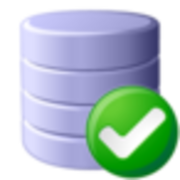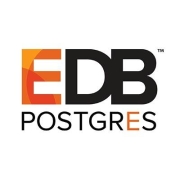DBaaS offers scalable database management hosted in the cloud, eliminating the need for physical infrastructure. It is tailored for efficient data handling, providing flexibility and cost-effectiveness for businesses seeking streamlined data operations.
Database as a Service provides organizations with managed database solutions, effectively reducing the complexity associated with traditional database management. Companies opting for DBaaS benefit from its scalability, automated backups, and high availability. It supports multiple database types and allows integration across various platforms, enabling businesses to focus on data utilization rather than infrastructure difficulties. Customers benefit from security measures integrated into the platforms, enhancing data protection and compliance with industry regulations.
What are critical features of Database as a Service?In finance, DBaaS supports large-scale data transactions with enhanced security, whereas in healthcare, it facilitates patient data management compliance. E-commerce platforms utilize it for real-time analytics and personalized customer solutions, enhancing user experience.
DBaaS assists organizations in simplifying database management, enabling them to focus on core business objectives by managing data efficiently, eliminating the need for in-house database expertise, and improving adaptability to technological advancements.
| Product | Market Share (%) |
|---|---|
| Amazon RDS | 19.1% |
| MongoDB Atlas | 14.0% |
| Microsoft Azure SQL Database | 13.0% |
| Other | 53.9% |































DBaaS enhances scalability by allowing you to easily adjust resources based on demand. Whether your business experiences seasonal spikes or steady growth, DBaaS enables automatic scaling, which means you can accommodate more users and transactions without investing in physical infrastructure. This flexibility not only optimizes performance but also reduces costs by ensuring you only pay for the resources you use.
What security measures are crucial in DBaaS solutions?Security in DBaaS solutions is paramount since your data is stored in the cloud. Key security measures include encryption of data at rest and in transit, robust authentication protocols, access controls, and regular security audits. As a user, it's important to choose a provider that complies with relevant regulations and offers detailed logging to monitor any unauthorized access attempts.
Can DBaaS solutions integrate with existing systems?Yes, most DBaaS solutions are designed to seamlessly integrate with your existing systems. Providers typically offer APIs and connectors for popular platforms, allowing you to synchronize data effortlessly. This integration capability ensures that you can leverage cloud database features while maintaining consistency and workflow efficiency with your current applications.
How does DBaaS help in optimizing database performance?DBaaS optimizes performance by automatically managing back-end tasks like indexing, tuning, and caching. These services monitor database activity, adjust configurations, and provide insights through advanced analytics. By offloading these tasks to your DBaaS provider, you free up resources and improve your database's responsiveness and efficiency.
What are the cost benefits of using DBaaS?DBaaS can significantly cut costs as it eliminates the need for physical hardware and related maintenance expenses. You benefit from a subscription-based pricing model, which aligns costs with actual usage, making budgeting predictable. Additionally, by reducing the need for in-house IT specialists for database management, you can allocate those resources more effectively elsewhere in your organization.